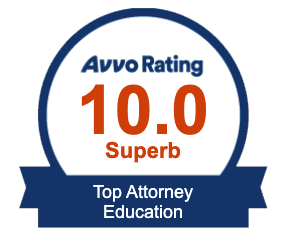This is the second post in a series of articles on how to prepare for your child’s annual IEP meeting that is likely to occur in March, April and May of each year in Georgia. In the last post on this subject, I stressed that it is important to be prepared to discuss your child’s current level of educational performance. Educational performance is not just academic or functional academics. It also includes communication, social, behavioral, pre-vocational and vocational skills, and other related areas of your child’s educational program. You should be familiar with the educational jargon that is used by most educators such as WIAT, WRAT, TONI and so forth. What do these terms mean? How are scored interpreted? You should first look for the standard score (SS) of each standardized assessment as standard scores are the most valid and reliable scores to determine your child’s educational performance. On the other hand, grade and age equivalent scores (GE or AE) are not valid and reliable indicators of your child’s current levels of performance. These scores may gauge a general range of your child’s educational performance but you have to be very careful in interpreting and using these scores as benchmarks for establishing IEP goals and objectives. For example, test scores may show your child is functioning at 1.3 GE in reading or one year and three months grade equivalent in reading. Does this truly mean that your child’s reading level is one year and three months? The answer is no. Unfortunately many educators and parents unwittingly use age and grade level scores as the gospel. They are not according to educational experts in the field. Standard scores are the best indicator of your child’s current levels of performance. Sometimes percentages (%) may be shown on an analysis of test scores or in the child’s current levels of performance. Again, you need to review and consider percentage rank (e.g. 60% ) with a few grains of salt. Percentage rank may helpful in considering a range of your child’s current levels of educational performance. But percentage rank is inexact and you should not rely solely upon percentage rank to determine your child’s IEP goals and objectives.
This is why it so important to learn how to read and understand psychological testing. You should strongly consider retaining an advocate or special educational attorney for the annual IEP meeting to assist you with understanding psychological and psychoeducational testing and results. Why? Because trained and experienced special education advocates and attorneys have benefitted from years of experience, training and education on psychoeducational and psychological testing. Is there a difference between the two types of testing? Yes. Psychoeducational testing is usually referred to as testing that is performance by the school system to assess your child in any areas of suspected disabilities and determine – among other things – the child’s current levels of performance. You should not assume that psychological testing is the same thing as psychoeducational testing. For psychological testing is likely to be different from psychological testing in a number of ways depending upon the circumstances of each evaluator. Not all evaluators are equal. This is true for psychoeducational evaluations and psychological evaluations. I have read a number of private psychological evaluations that fall short of being useful in developing an appropriate IEP for a child. I have also read a number of psychoedducational evaluations that were satisfactorily in determining the child’s current levels of performance and abilities that were used in developing a child’s IEP. When the parents believe that the school system’s psychoeducational evaluation is inappropriate, then the parents have a right to request to an independent educational evaluation or IEE. For now, I will not explain what is an IEE and how parents can legally seek one. This discussion will be for another day. In the meantime, we will continue to focus on school evaluations or psychoeducational evaluations.
Psychological or psychoeducational testing is a science but it is also an art to some degree. If the school system completes only a basic evaluation in the major areas such as intelligence, achievement, communication, memory, behavior and adaptive behavior, then the evaluator may miss a number of areas that should be assessed the child. A child with Attention Deficit Hyperactivity Disorder (ADHD), for instance, may exhibit behavior challenges at school. But a child with ADHD is also likely to have deficits in executive functioning. What is this? Executive functioning is like having a secretary in your brain. (I heard this from a teacher at an IEP meeting many years ago). The secretary may organize most of everything you do. Likewise, the secretary in your brain helps you organize your thoughts and ability to perform routine and multi-leveled tasks. We take for granted that we get into a car, fasten our seat belts, adjust the seat and mirrors, if necessary, put the keys into the ignition and start the car. These are all components of executive functioning. A child with ADAD is likely to be disorganized, forget assignments and home work, and lack the skills to develop a notebook or binder for compilation of materials and documents. Thus it is important to assess a child’s executive functioning skills to determine why the child is having difficulty at school in securing good grades, completing assignments, and bringing home classwork.
So what does all of this have to do with an annual IEP meeting? Psychoeducational and psychological testing and assessment is one of the critical building blocks from which you can determine your child’s current levels of performance and develop an appropriate IEP for your child. Unless you fully understand all that educational jargon and test scores, then you will not likely to be able to become a full partner in developing your child’s IEP. You right to ask questions and have valuable input into the IEP process will hampered by your lack of understanding of the results of test scores and assessments. You should be well equipped at an IEP meeting. Equipment means your own knowledge but also others that you may bring to the annual IEP meeting. The investment of hiring an advocate or special education attorney is something you have to weigh given your financial circumstances. Hopefully your money will be well spent on the services of a independent professional at an IEP meeting.
Nest time we will discuss more tips and suggestions about writing IEP goals and objectives and extended school year programming.

